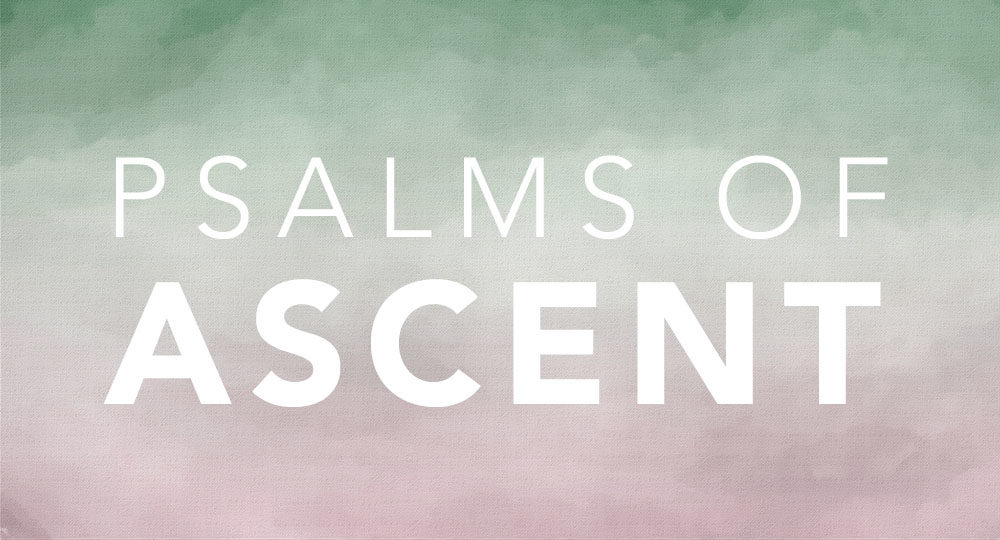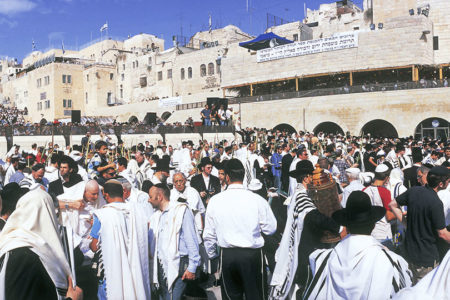Psalm 133: Our Unity
Hine ma tov u’ma-nayim, shevet ach-im gam ya-chad. These Hebrew words are familiar to anyone who attends synagogue regularly. “Behold, how good and how pleasant it is for brethren to dwell together in unity!” (Ps. 133:1).
You can almost hear the ancient pilgrims singing this Song of Ascents as they journeyed up to Jerusalem to celebrate one of the feasts of Jehovah at the Temple, as God had commanded: “Three times a year all your males shall appear before the Lᴏʀᴅ your God in the place which He chooses” (Dt. 16:16).
Psalm 133, written by King David, exalts and praises unity. The celebrants journeyed together to the House of the Lord, singing of the blessings of unity of heart and purpose.
It is also a blessing when Christians are united. Dr. James Montgomery Boice, the late pastor of Tenth Presbyterian Church in Philadelphia, wrote, “Some things are good for us but not pleasant. Other things are pleasant but not good. But the unity we have as God’s people is both good and pleasant. It is even a bit of heaven now.”1
David used two similes to extol the joy of unity. First, he compared it to oil running down the beard of Aaron, Israel’s first high priest: “It is like the precious oil upon the head, running down on the beard, the beard of Aaron, running down on the edge of his garments” (v. 2).
Today that comparison probably seems incomprehensible. But Jewish pilgrims would have thought of Leviticus 8:12: “And he [Moses] poured some of the anointing oil on Aaron’s head and anointed him, to consecrate him.”
As high priest, Aaron was the intercessor between God and the Israelites, once a year offering a blood sacrifice to atone for their sins. The oil Moses used to anoint Aaron was precious, scented with myrrh, cinnamon, cane, and cassia (Ex. 30:22–24), a recipe from God; and it separated Aaron for service.
The oil represented God’s abundant blessing, cascading down from heaven. The fact that David described it as going from Aaron’s head to his beard and garments symbolizes God’s blessings overflowing.
David’s second simile involves the dew of Mount Hermon: “It [unity] is like the dew of Hermon, descending upon the mountains of Zion” (Ps. 133:3). Mt. Hermon is the highest peak in Israel, rising 9,000 feet above sea level. It can be seen 120 miles away. Two thirds of the year, it is covered with snow. But when the snow melts, the water feeds the Jordan River, which then feeds the Sea of Galilee and runs again into the Jordan River.
Because Hermon receives more moisture than Zion, it is more lush. Commentator Allen P. Ross said the dew symbolizes “what was freshening and invigorating . . . a fitting symbol of the Lord’s blessing on His people.”2
Because Hermon’s dew descended on Zion, “there the Lᴏʀᴅ commanded the blessing––life forevermore” (v. 3). Zion is the place of God’s presence. It is where God wanted to meet with His people. They would come united in purpose to worship and fellowship with one another. God’s presence is the place of life everlasting.
This joyous song is still sung every Shabbat and is popular anywhere Jewish people are gathered, giving strength at special times.
A moving rendition occurs in a film depicting the Israeli raid to rescue 103 Jewish hostages from Entebbe, Uganda, in 1976. Israeli commandos flew 2,500 miles on this seemingly impossible mission, which was miraculously successful. As the joyful commandos flew back to Israel, they joined together to sing, “Hine ma tov u’ma-nayim, shevet ach-im gam ya-chad.”
True and lasting unity can never be achieved apart from God. Wrote Dr. Boice, “Genuine community can only be established by Jesus through the power of his kingdom. This important fact makes Psalm 133 an appropriate psalm to follow the promise of blessing through the Messiah’s reign.”3
ENDNOTES
- James Montgomery Boice, Psalms, “Psalm 133: Unity and Community” (Baker Books, Grand Rapids, MI: 1998), 1,160.
- Allen P. Ross, “Psalms,” The Bible Knowledge Commentary, ed. John F. Walvoord and Roy B. Zuck (Victor Books, Wheaton, IL: 1985), 1:888.
- Boice, 1,159.






This is awesome!! May the good Lord give you more insights Servant of the most High God.
This was wonderful to read and it helped to express what I was feeling when I read this psalm. God is so amazing.
So Beautiful thank you.
This explanation is straightforward, cut to the chase , more biblically direct, unlike others I have read before, full of junk, excesses, leading the mind astray.
Powerful commentary thank you for the explanation.
Useful for me
Very helpful and insightful. Thank you . Blessings in Yeshua’s mighty Name.